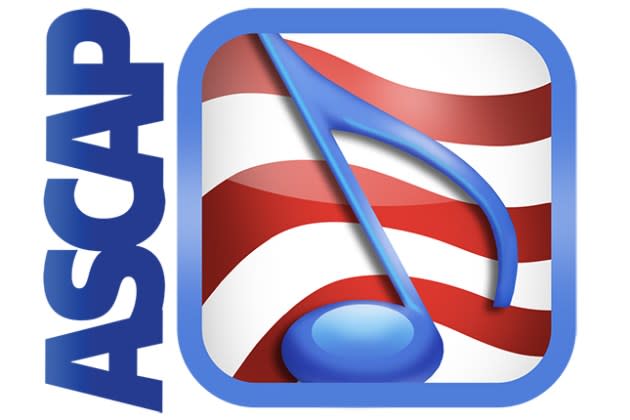ASCAP Expo: Confessions of Hit Producers feat. Eman Kiriakou, ‘Drumma Boy’ Gholson, Dan Omelio and Brendan Benson
- Oops!Something went wrong.Please try again later.
- Oops!Something went wrong.Please try again later.
- Oops!Something went wrong.Please try again later.

Aspiring songwriters and performers, get your Twitter thumbs ready. Emanuel “Eman” Kiriakou, whose hands were all over Selena Gomez & The Scene’s #1 Billboard single “Who Says” and Hot Chelle Rae’s Billboard #1 “Tonight Tonight,” says he will click on any Soundcloud link Tweeted at him. (That handle, by the way, is @EmanuelKiriakou.)
Why? “Because you never know,” the songwriter and producer told the audience at the ASCAP Expo’s “Confessions of a Hit Producer” panel on Thursday in Hollywood. A show of hands revealed that the vast majority of folks in attendance were aspiring songwriters, producers and/or performers themselves. Eman said he got his big break thanks to ASCAP, when New Kids On The Block’s Joey McIntyre heard his solo album through the performing rights organization and asked him to co-write with him. “I wrote with Joe and [then] he asked me to produce his record. That was it for me.”
More from Billboard
Zac Efron Was Surprised With a 'High School Musical' Tribute While Filming 'The Iron Claw'
Jon Batiste, Nicholas Britell & More Are Nominated for 2024 SCL Awards: Full List
Taylor Swift Has Half of the Week's Top 10-Selling Albums, Again
Eman was seated next to three of the brightest stars working behind the scenes (and in some cases, in front of them) in the Ray Dolby Ballroom at the LOEWS Hollywood Hotel.
Brendan Benson, one of Jack White’s collaborators in The Raconteurs, is the co-producer and co-songwriter (with White) behind the band’s debut single, “Steady as She Goes.” He’s also an accomplished solo artist, with several albums under his belt.
Dan “ROBOPOP” Omelio’s first #1 single was “Stereo Hearts” with Gym Class Heroes and Adam Levine. Together with Ammar Malik and Benny Blanco, he’s also worked on Gym Class Heroes’ “Ass Back Home” and Lana Del Rey’s “Videogames.”
Christopher “Drumma Boy” Gholson was 30 minutes late (thanks to a flight from New York) but arguably the most animated of the talkative crew, often using big gestures and verbal sound effects while telling stories from his experiences working with Chris Brown, Wiz Khalifa, Rick Ross, Gucci Mane, Drake and many more.
The panel was moderated by Teresa LaBarbera, a veteran A&R executive and executive producer who developed Beyonce, Destiny’s Child and Jessica Simpson. She has also worked with Pink, The Backstreet Boys and Britney Spears.
The big takeaways from the four of them were to stop worrying about getting a record deal out of the gate and to just start putting things on Soundcloud and elsewhere online (“you’d be surprised how many people are scouring YouTube looking for people to discover,” LaBarbera promised), to position yourself in New York, Los Angeles, Nashville or Atlanta (“nothing against Des Moines,” noted Eman) and that, perhaps most importantly, practice makes perfect.
Ghoulson likened his trial-and-error experiences to getting basketball lessons from his dad. Warren G and Nate Dogg’s “Regulate” was a turning point for him as a boy. He grew up in South Memphis before his parents moved him to the suburbs, where he found himself making beats for a friend to blast through his Alpine. His story is one of perseverance. “I was wanting to work on several T.I. albums before I made Paper Trail,” he said. “It’s experience; a constant determination not to give up.”
Benson was the guy in high school who started recording his own songs with a dual cassette player. “I could perform a take and then switch tapes and mix in a harmony or another guitar part. Ultimately I liked that more than I did writing or performing.” From there, he had a 4-track, then an 8-track, and eventually a 1” tape machine with an MCI console, making him the go-to for neighborhood bands.
While each of them is a massively capable songwriter/producer on their own, they spoke openly about the importance of collaboration. “I was so used to writing by myself,” said Eman. “When I started collaborating I realized there are people that are better at certain things than I am. I realized that I can play to my strengths [and let them play to their strengths]. That was an awakening for me. You start to get into a groove and you kind of hold onto those people.”
And if an artist is giving you trouble in the studio? “Get ‘em drunk!” laughed Eman. All of them suggested taking a break, grabbing some Starbucks or a bite to eat, making a human connection with the artists and then going back to the difficult bits.
The panel extolled the virtues of ASCAP as a way to get from “the middle” to the upper tier of the biz. Omelio also stressed the importance of a strong team. “Surrounding yourself with a great manager or a great lawyer and people who have inroads [to] the upper part of where you want to be. People who are striving for more and can get you in the situations that will help you rise.”
Best of Billboard
